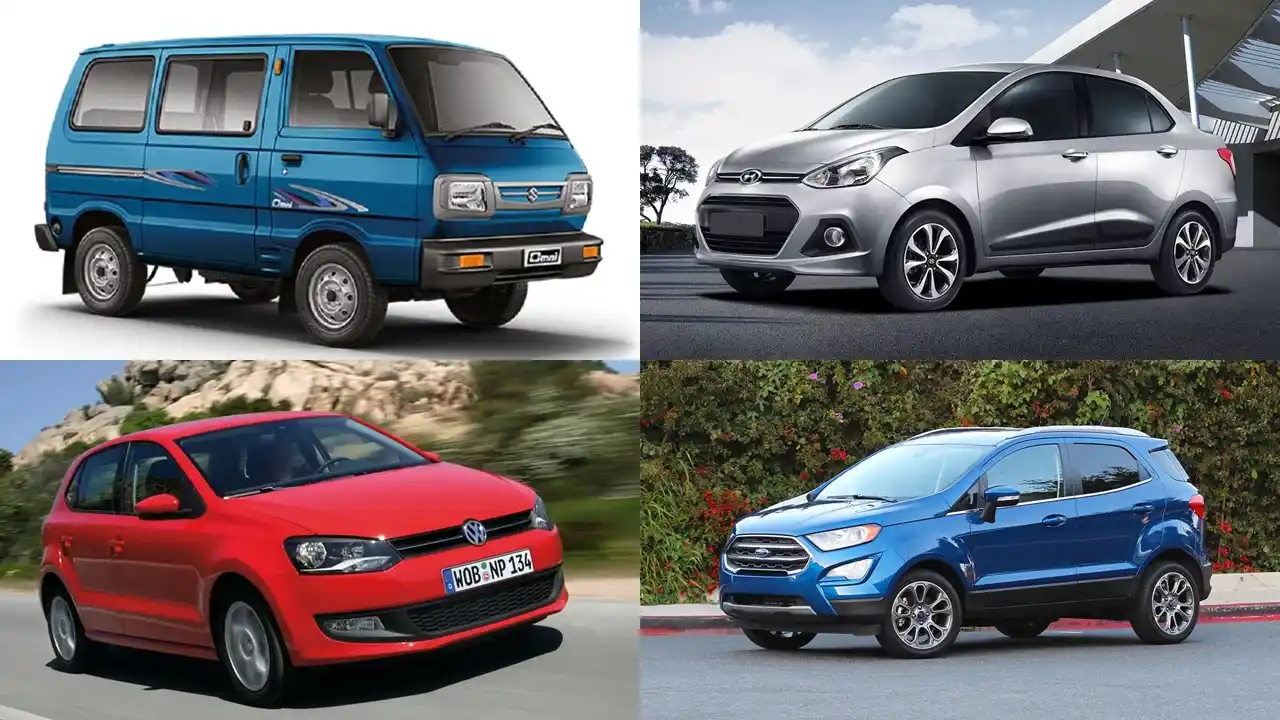Home »
In the ever-evolving scenery of the automotive industry, manufacturers constantly reassess their product lineups to stay competitive and meet changing consumer demands. As a result, some car models inevitably face the fate of discontinuation. In 2023, the Indian automotive market witnessed the discontinuation of several notable car models, each with its own story and reasons behind the decision. Let’s take a closer look at these discontinued models. And the factors that contributed to their exit from the Indian market.
Discontinued Car Models List in India
Maruti Suzuki Omni:
The Maruti Suzuki Omni, a familiar sight on Indian roads for decades, bid farewell in 2023. This versatile people carrier had served various purposes, from family outings to commercial transportation. However, its boxy design and lack of modern safety features rendered it outdated in an era where consumers prioritize safety and comfort. Maruti Suzuki’s decision to discontinue the Omni reflected the need to streamline its product lineup and focus on models that align with contemporary automotive trends.
Hyundai Grand i10:
Hyundai’s Grand i10, once a popular choice in the hatchback segment, saw its journey end in 2023. Despite its spacious interior and decent performance, the Grand i10 faced stiff competition from newer rivals offering advanced features and technology. Hyundai’s decision to discontinue the model was strategic, making way for its successor, the Grand i10 Nios. By introducing a refreshed model with updated features, Hyundai aimed to maintain its competitiveness in the market and cater to evolving consumer preferences.
Tata Indica:
The Tata Indica, a pioneering hatchback that revolutionized the Indian automotive industry, reached the end of its production in 2023. While it enjoyed success in its early years, Indica struggled to keep pace with newer models in terms of design and technology. Tata Motors shifted its focus towards more contemporary offerings like the Tiago and Altroz, leading to the discontinuation of the Indica. Despite its legacy, the decision reflected Tata’s commitment to innovation and adaptation to changing market dynamics.
Honda Jazz:
Honda bid on the Jazz in 2023, marking the end of an era for this spacious and versatile hatchback. Despite its practicality and Honda’s reputation for reliability, the Jazz faced tough competition from rivals like the Maruti Suzuki Baleno and Hyundai i20. Low sales figures and the need to rationalize Honda’s product lineup prompted the discontinuation of the Jazz in India. While it garnered a loyal fan base, the decision underscored the challenges of competing in a crowded segment dominated by established players.
Volkswagen Polo:
Volkswagen’s Polo, once a familiar sight on Indian roads, ceased production in 2023 as part of the company’s global strategy realignment, with a shift towards electric vehicles and a focus on more profitable markets. Volkswagen chose to discontinue the Polo in India. Despite its initial success and solid build quality, the Polo faced increasing competition from newer hatchbacks with advanced features and technologies. Volkswagen’s decision reflected the broader industry trend towards sustainability and technological innovation.
Ford EcoSport:
Ford’s compact SUV, the EcoSport, reached the close of its journey in India in 2023. Despite its early success and popularity, the EcoSport struggled to maintain its position in the competitive SUV segment. Declining sales and Ford’s decision to exit the Indian market altogether led to the discontinuation of the EcoSport. While it offered a blend of ruggedness and urban practicality, the EcoSport faced stiff competition from newer rivals with more advanced features and technologies, ultimately sealing its fate.
- Audi GT50 Concept: A Loud Reminder of Why Car Enthusiasts Fell in Love With Audi
- Nearly 30% of UK Drivers Believe Car Tax Should Be Based on Mileage — Survey
- Why Planes and Boats Escaped the Luxury Tax But Cars Didn’t
- Australia’s Headlight Confusion: Authorities Warn Drivers After Viral $250 Headlight Rule Goes Wild Online
- 2025 Hyundai Venue Facelift Launched in India – Full Details, Variants, and Price
Nissan Micra:
Nissan bid farewell to the Micra in 2023, ending its presence in the Indian hatchback segment. Despite its decent features and performance, the Micra failed to gain significant traction among Indian consumers. Nissan’s global restructuring efforts and focus on markets with higher potential contributed to the discontinuation of Micra in India. While it offered a comfortable ride and efficient engine options, the Micra struggled to stand out in a crowded segment dominated by established players.
Renault Captur:
Renault’s Captur, with its distinctive styling and decent features, exited the Indian market in 2023. Despite its unique design and spacious interior, the Captur failed to attract enough buyers in the competitive compact SUV segment. Renault’s decision to discontinue the Captur was motivated by poor sales performance and a strategic focus on more successful models like the Kwid and Duster. While it offered a comfortable ride and decent features, the Captur faced an uphill battle against more established rivals, ultimately leading to its discontinuation.
Conclusion:
The discontinuation of car models in India in 2023 reflects the dynamic nature of the automotive industry and the challenges faced in staying relevant amidst evolving consumer preferences and market trends. While some models faded away due to outdated designs and poor sales performance, others made way for refreshed successors or were casualties of broader corporate strategies. As the automotive landscape continues to evolve, manufacturers must adapt to changing market conditions and consumer demands to remain competitive in the years to come.
